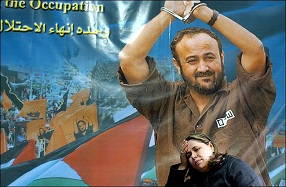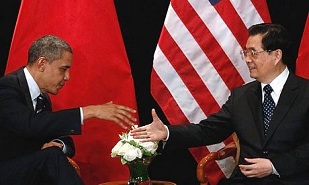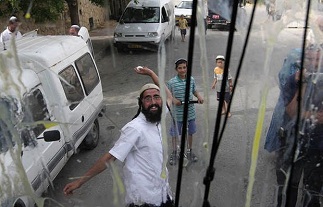Marwan Barghouti: Prisoner of Conscience

Fadwa Barghouti, the wife of jailed Palestinian leader
Marwan Barghouti, stands in front of a big poster with
her husband's portrait at the offices of the "Campaign
to free Marwan Barghouti" in Ramallah. (J. Hill/NYT)
"From the beginning of the investigations until the final day of the trial, the prosecution put almost as much effort into staging a media event as it did into working on the legal aspects."
From March 29 - May 3, 2002, during the second Intifada, Israel conducted Operation Defensive Shield. Before Cast Lead, it was its largest military operation since June 1967 when Israel occupied Palestine.
On September 23, 2001, a warrant was issued for Barghouti's arrest. On April 14, 2002, he was arrested on spurious charges of murder, aiding and abetting murder, promoting murder, criminal conspiracy, and being an active member of a terrorist organization. At the time he said:
"I am a political leader, a member of the Palestinian Legislative Council, elected by my people. Israel has no right to try me, to accuse me, to judge me. This is a violation of international law. I have a (legal) right to resist occupation."
On September 5, his trial began. Barghouti disputed its legitimacy under international law. On December 12, Judge Zvi Gurfinkel ruled as follows:
"I reject the argument at this stage of the proceeding regarding the Court's authority in the context of the petition for the detention pending completion of proceedings filed by the State against the Defendant."
"Ultimately, the State of Israel has the right and the authority to judge the Defendant," according to Israeli and international law.
On May 20, 2004, Barghouti was convicted of involvement in three terrorist attacks killing five people. Acquitted on 33 other charges, he received five consecutive life sentences plus 40 years.




























